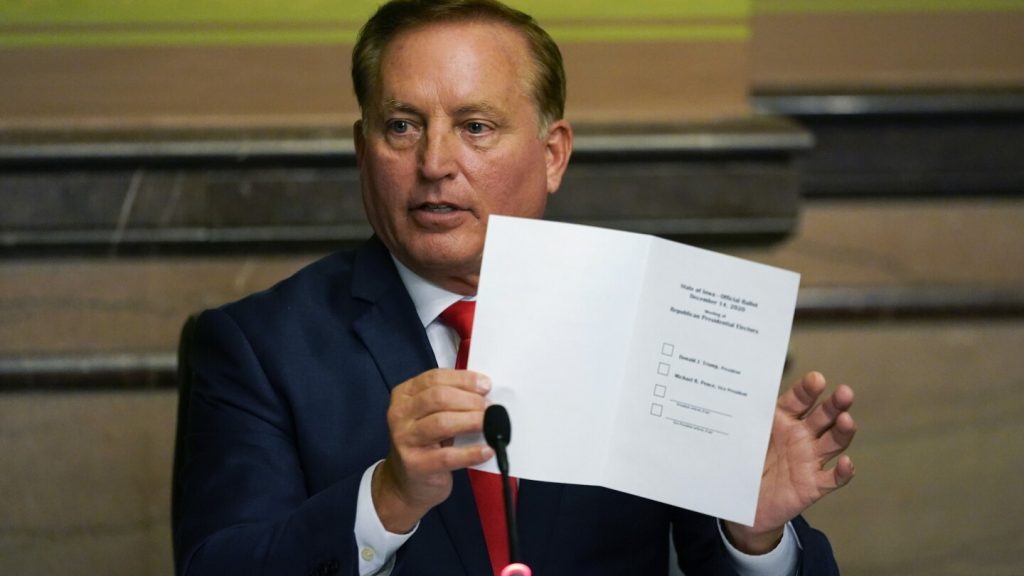Iowa’s top election official, Paul Pate, confirmed that some voters were improperly removed from registration rolls due to challenges filed too close to the election. This occurred during a designated “quiet period” within 90 days of the election, during which limited changes can be made to voter rolls. Pate directed county auditors to reinstate the affected voters, and most, if not all counties, have complied. The American Civil Liberties Union raised concerns about the issue, stating that individuals contacted them after being notified by their county auditors about their registration status being investigated due to challenges.
The National Voter Registration Act mandates a 90-day quiet period before elections to prevent the removal of legitimate voters from rolls due to bureaucratic errors or last-minute mistakes. The Act also prevents the removal of voters due to a change of address without confirmation from the voter themselves or a failure to respond to notices and not voting in two general federal elections. Iowa law has a 70-day freeze period, requiring most challenges to voter registration status to be filed before August 27th. In one county, Pottawattamie, a man challenged 605 voters in August, violating the federal 90-day quiet period law.
The issue of mass voter challenges, often based on outdated or incomplete information, has raised concerns about disruptions to the election process. Rita Bettis Austen of the ACLU of Iowa suggested that these challenges may be malicious attempts to disrupt the election, although the exact origins of these challenges are unclear. Election officials, like Melvyn Houser from Pottawattamie County, are now working to reinstate voters who were improperly removed due to challenges filed within the 90-day quiet period. Despite following state law, they were unaware of the federal law regarding the quiet period.
The 2024 Election is under increased scrutiny for voter fraud following false claims of widespread fraud during the 2020 presidential election. Accusations of non-U.S. citizens registering to vote and voting have become a major focus of conservative campaigns, despite limited evidence of such occurrences. Some states, including Iowa, have identified isolated cases of non-citizens voting. The Supreme Court’s conservative majority recently allowed Virginia to resume its voter registration purge aimed at preventing non-U.S. citizens from voting. Iowa Secretary of State Pate sent county auditors a list of over 2,000 individuals who initially claimed they were not citizens but later registered to vote, highlighting potential issues with voter registration processes.
As election officials navigate challenges around voter fraud and registration issues, the focus on protecting voter rights and ensuring fair and accurate elections remains paramount. With ongoing legal battles and changing regulations, transparency and adherence to federal and state laws are crucial to maintaining the integrity of the electoral process. The importance of maintaining accurate voter registration rolls while safeguarding against improper removal of legitimate voters underscores the need for vigilance and compliance with established election laws and procedures.


